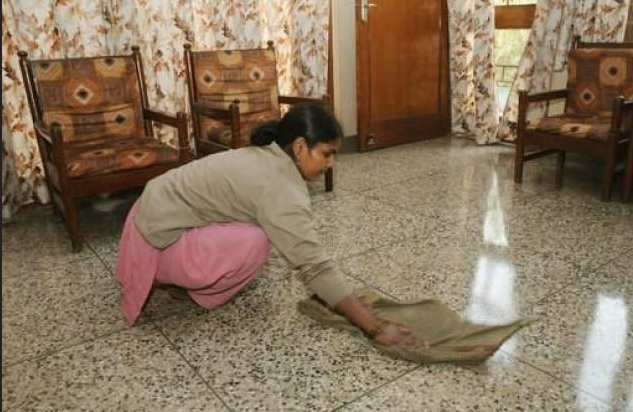Astrid Zweynert writes: The promise of a salary five times what she could make at home prompted Nabila to leave Indonesia and her family for a job as a domestic worker in Singapore.
What she did not realize was that it would be eight months before she earned a cent because of deductions made by the employment agency that brought her to Singapore.
With a 17-hour working day that started at 5am, a “very demanding” employer and dinners that consisted of leftovers, the 30-year-old said she was driven to despair.
Employment agencies are part of a complex web spun across Southeast Asia by brokers and agents that allow the domestic workers virtually no say in their working conditions.
Reports of domestic workers being burned, beaten and raped have sparked outrage in Asia, which has the largest share of the world’s domestic workers at more than 21 million.
The Philippines is the only Asian nation to have ratified the International Labour Organisation’s convention on domestic workers, which bans recruiters from taking money from workers’ wages to recoup placement fees, among other measures.
Activists say an example of discrimination against foreign domestic workers is their exemption from Singapore’s Employment Act, which regulates working conditions for locals.
Many domestic workers still work seven days a week even though the government introduced a compulsory weekly day off for them in 2013. Employers can opt out of this by offering to pay.
Often, workers dare not say ‘no’ even if they only get paid an average of S$17 if they work on their day off, Ummai Ummairoh, president of the Indonesian Family Network (IFN) said
Singapore’s maids are forbidden to live away from their place of work, which for many means being on call all the time.
Some said they have to share rooms with their employer’s children or elderly relatives and sleep in the hall or the living room, unable to sleep until the employer goes to bed.
At HOME’s shelter for domestic workers, a Filipina said she was dismissed without notice by her American employer after four months because she did not know how to cook Western food.
Still owing money to the employment agency, she now faces having her work permit cancelled and being forced to return to Mindanao, a particularly poor region of the Philippines.
Unlike in Hong Kong, another top Asian destination for domestic workers, those in Singapore are not allowed to form a union and must rely on informal networks and charities for help.
Ummairoh is proud that the IFN and its counterpart, the Filipino Family Network, provide classes in English, computer studies, hairdressing and make-up skills.
A plan by Indonesian President Joko Widodo to stop domestic workers from working abroad is unlikely to succeed unless there are better jobs available at home, said Ummairoh.

